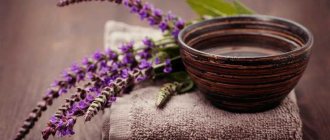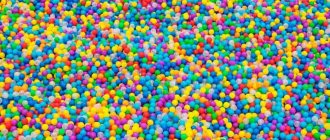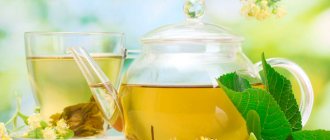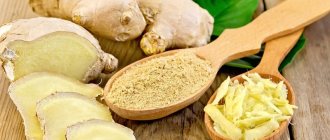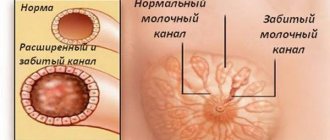Today there is a lot of talk about the benefits of breastfeeding. But no matter how pleasant and useful this intimate process is for mother and child, there comes a time when it becomes necessary to stop it. You can wait until lactation ends naturally, but there are situations that force you to resort to medication. But medications are not always safe and harmless. In this case, natural herbs to stop lactation will come to the rescue.
What herbs are used?
To reduce the amount of milk and stop its production, herbs that suppress lactation are used, such as:
- lingonberry leaf;
- bearberry;
- elecampane;
- corn silk;
- belladonna;
- peppermint;
- sage;
- walnut leaf;
- hop cones
It is worth understanding that a sudden stop in milk production will not occur when consuming herbs that reduce lactation. The use of decoctions is suitable for mothers entering the stage of natural involution of this process, in order to help the mammary glands gradually stop producing milk.
When can you stop feeding?
When deciding to stop breastfeeding, do not forget that this is stress for the child and the mother’s body. Therefore, if there are no difficult circumstances under which it is necessary to abruptly stop feeding, this should be done smoothly and consistently, giving preference to herbs to stop lactation.
Problems encountered during weaning:
- Child's tantrums, crying. A baby, especially one under 2 years old, may simply not understand why you suddenly stopped feeding and soothing him in the usual way.
- Milk flow, chest discomfort, feeling of fullness, bloating, burning.
Sometimes there are situations when children themselves stop taking the breast. They are usually already used to breast milk alternatives, bottles or sippy cups. In this case, weaning is painless and taking herbs will help the mother cope with the presence of milk in the best possible way.
Among the older generation, it is generally accepted that after a year the baby is already “big” and it is not worth breastfeeding. According to WHO recommendations, up to two years of age, you can and should feed your child your own milk. You should not be upset and forcefully insist on stopping breastfeeding if your baby is older than a year, but is not yet ready to part with your favorite ritual.
What are the reasons for refusing breastfeeding?
Interruption of lactation after childbirth can be performed for several reasons: medical conditions and reluctance to breastfeed. Of course, the mother herself has the right to decide whether to breastfeed her baby or not; this is her personal right - the right to independently manage her body. Therefore, some mothers deliberately refuse to breastfeed, even when everything is fine in terms of their health.
Medical indications for not breastfeeding can vary significantly. For example, this includes illnesses of the mother associated with taking antibiotics, hormonal drugs, drugs that can get into colostrum and therefore harm the baby.
Certain illnesses of the newborn require the suspension of breastfeeding. In such cases, doctors may prescribe medications to stop lactation. Usually these are hormonal agents that affect the pituitary gland and lead to a stop in the production of prolactin. It is this hormone that is responsible for the normal course of lactation. Drugs that are prescribed: duphaston, ugrozhestan, microfollin, etc. They often lead to side effects, and therefore you should absolutely not prescribe them yourself.
It is worth saying that in reality only a small percentage of cases require stopping breastfeeding. Usually it is enough to take a short break, during which you can express milk. For newborns, breast milk is an important product that is unlikely to be 100% replaced.
When should you wait until lactation ends?
Signs when a child is not ready to be separated from feeding and most likely the process will be accompanied by hysterics, crying and mutual nervous tension:
- if you do not breastfeed on demand, the baby becomes very indignant and cannot be calmed down with anything else;
- It is difficult to put a baby to sleep without breastfeeding;
- At night, the baby is applied to the breast several times;
- the baby sucks the breast to calm him down during difficult psycho-emotional situations;
- the child is less than two years old.
Finishing feeding correctly
Focus on your baby when deciding when to stop feeding. Weaning is more likely to be painless, without unnecessary nerves and whims, when:
- a child over two years old;
- he does not require the breast out of boredom;
- may not remember at all about mother and milk for a long time;
- recognizes other drinks from a bottle or sippy cup;
- attachments are minimal, occurring only when going to sleep or at times of stress.
We recommend reading: Dopegit during breastfeeding: can nursing mothers use it?
The main thing is to do no harm
Despite the fact that traditional medicine offers a lot of herbs to stop lactation, not all of them are harmless and safe. For example, belladonna, also called “rabies”, contains atropine, a substance that causes strong nervous excitement in humans, leading in rare cases to rabies. Its use is dangerous and is fraught with at least insomnia for mother and child. Walnut leaves are also not the best choice for ending a feeding. They have an intoxicating effect; leaf extracts are used in formulations to control pests on trees and cultivated plants. It is better to include the nut leaf in preparations rather than take it on its own. Therefore, when selecting herbs to reduce lactation, you must be guided by the “do no harm” principle.
In the vast majority of cases, doctors recommend sage and mint, which have proven to be the safest and most effective. With the correct dosage, they do not harm the health of mother and child.
Expert opinions and reviews from women
Doctors recommend using special medications to reduce milk production only in extreme cases and do not prohibit herbal remedies.
If, after a woman has stopped breastfeeding, milk continues to be produced, hot flashes are intense, discomfort occurs in the mammary gland or the temperature rises, when lactation does not stop for 3-4 days, you need to take special medications that stop milk production. They are quite effective, but only a doctor should recommend and prescribe them. These medications act through the central nervous system, and their uncontrolled use without the advice of a doctor can lead to serious complications.
Viktor Davydenko - gynecologist of the highest category at the Meditsina clinic
Folk remedies for reducing lactation include all types of diuretic herbs (lingonberry, basil, horsetail, parsley, etc.). Particularly noteworthy are mint and sage. If you brew sage infusions and drink them regularly, lactation will decrease after just a few days of use.
Maria Nazarova, leading breastfeeding consultant
Young mothers also prefer herbal remedies, considering them safer.
To help my milk flow out, I started drinking mint and sage. I simply brewed two filter packets of peppermint and sage and drank two glasses a day. And the milk went away on its own. On the second day, milk stopped coming from this “tea”. And after another 2 days it burned out completely. Many of my friends had problems with completing breastfeeding, but here is such a simple, cheap and most importantly natural and absolutely harmless method. I recommend it to all young mothers!
Vikki_333
To reduce the amount of milk produced, I chose the traditional method - an infusion of medicinal sage. I bought 2 packs, and as soon as I was in the mood, in the evening, I brewed myself the first portion... And... Let's go... I only drank sage for 5 days, just while it was actively filling. A couple of times I had to express lightly, once I had to apply Vishnevsky’s ointment to the places of the seals. Some kind of “terrible horror” that I was expecting did not happen. The breasts could be “weared”))), and they did fit into the bra, again thanks to sage) I only had pain in the armpits for a couple or three days. And it was difficult to sleep those first few days.
STAR IN THE SKY
To stop lactation, drink less fluid. Tea with mint (1 cup a day) helped me a lot - then less milk will come in. if the breasts are still “full”, express carefully (trying not to touch the areola), do not allow hardening.
vendredi
Now I can say for sure that camphor oil helps stop lactation. Fold gauze in several layers, soak it in oil and wrap it around the breast so as not to affect the nipple. On top there is a bag and a T-shirt. So that everything would hold. I did it 4 nights in a row, and the milk just went away, but then stopped and started again. So I think it needs to be completed to the end. Although now I still pump not once a day, but once every two days. I think that this is progress
meri
I covered my chest with cabbage leaves, slept with them, brewed mint, a lot of mint and drank it. Lactation passed in 5 days. Still not a single discharge (2 months have passed)
Xenophobia
Most Effective Herbs
Bearberry. Widely used for diseases of the kidneys and urinary tract, pyelonephritis, cystitis. Natural diuretic. Used to treat inflammation of the bladder. Able to reduce the volume of milk when there is an excess of it. Softens the stage of the end of feeding, improving the general condition of the mother. Helps the mammary glands to recover, the breasts become more elastic, lumps dissolve, and soreness goes away. Nursing mothers use bearberry to prevent mastopathy. You should start taking the decoction on the first day that you decide to go without lactation.
Lingonberry leaf. It has a diuretic effect and antiseptic properties. The astringents and tannins contained in lingonberry leaves help stop lactation. Some women have been familiar with lingonberries since pregnancy, if there was swelling and the doctor prescribed a decoction of the leaf. The medicine is prepared as follows: 2 tablespoons of dried leaf are poured into a glass with boiled water. Leave for 20 minutes. Take two tablespoons three to five times a day.
Sage. Known for anti-inflammatory properties. The range of applications is wide: from throat diseases to gynecology. It is successfully used by women who want to conceive, but have difficulty in this matter. The phytohormones contained stimulate the production of sex hormones. But during lactation, sage has a suppressive effect on the hormones responsible for milk production.
Peppermint. Used for motion sickness, nausea, gastrointestinal disorders. It should be noted that it is peppermint that helps stop lactation. Other types of it, for example, spiked milk, on the contrary, stimulate milk production. Menthol contained in mint suppresses lactation when taken regularly. Drinking mint tea is very pleasant. During menstruation, increased bleeding may occur when taking it.
Elecampane. Has a diuretic effect. It is safe and effective when used correctly. The desired effect can be achieved within a week.
Corn silk. They calm you down, give you strength and lift your spirits. Used for weight loss, speed up metabolic processes. They have a diuretic, choleretic effect, and restore salt balance. Used for uterine bleeding. Therefore, they are suitable for women who want to complete feeding, but suffer from heavy discharge during menstruation.
Compositions. In order to achieve a faster effect, you can use several herbs, making collections from them. For example, mix walnut leaves, sage and hops. Pour boiling water over two or three tablespoons of the mixture in a glass of water. The walnut leaf has astringent properties, and hops regulate water and lipid metabolism and contain phytoestrogens.
Compresses to stop lactation
Another very well-known way to complete breastfeeding is the use of compresses. Some of them are recommended to be done only at night, others - during the day, periodically changing the dressings. Before using this method, it is better to consult a specialist. The gynecologist will palpate the mammary glands and tell you how to apply the bandage correctly.
Sometimes this method is effective not only during the completion of lactation, but also for relieving inflammation in the breast if milk stagnation has formed in the ducts.
Camphor oil compress
The use of camphor oil during the period of stopping breastfeeding began quite a long time ago. The principle of action is based on a warming effect, which is why it is recommended to apply the compress at night.
- Heat the camphor oil in a water bath until warm.
- Apply to chest. You can use a bandage or gauze soaked in the product.
- Take an elastic bandage or diaper and tie it around the mammary glands.
You cannot bandage your chest tightly to avoid fluid stagnation.
- Tie a warm scarf or scarf on top.
- Leave the compress on all night.
The main condition for achieving the effect is to keep the chest warm. After applying the bandage, a woman may experience a slight tingling sensation, as if the mammary glands are warming up. This is fine.
Camphor oil can be applied directly to the chest or soaked into a section of bandage.
Before applying the bandage, you can massage the mammary glands using camphor oil. Kneading movements will be a good prevention of milk stagnation. If, after removing the compress, the breasts are hard and painful, you need to express some fluid until relief occurs.
Cabbage leaf compress
Cabbage leaves have anti-inflammatory properties, so this compress is often used by women who have stopped breastfeeding.
- Take two cabbage leaves and wash them well under running cold water.
- For best results, chill in the refrigerator for two hours.
- Press them with your hands so that a small amount of juice comes out.
- Place it on your chest and cover it with an elastic bandage or gauze.
Some women simply put them in their bra. But the main rule is that the sheet should fit tightly to the skin of the mammary glands.
- After three to four hours, the compress can be changed.
Cabbage leaves help relieve inflammation in the breast during lactation.
This procedure can be performed once or several times a day for a week. If a woman feels lumps, pain, or increased body temperature, it is better not to self-medicate and consult a doctor.
Reduced milk supply
The use of herbs that stop lactation will help speed up involution and reduce the amount of milk smoothly. The advantage is the ability to breastfeed the baby and take decoctions. After your milk has subsided, you should not stop taking herbs. They will help prevent mastitis. It should be understood that plants will not stop lactation instantly, it will take some time. But the advantages over pills are obvious; there are no harmful effects on the body after taking hormones.
To reduce milk production, in addition to taking herbs to stop lactation, you should adhere to the following recommendations:
- Do not feed your baby or express milk. This will contribute to the slow decline of product production. This should be done gradually, depending on the individual characteristics of the baby and feeding regimen. Then there will be no stagnation and discomfort in the mammary glands, and the baby will wean smoothly. If your breasts are very full, you shouldn’t express yourself completely (just to make it a little easier).
- Do not consume excess liquid. To improve lactation, it is recommended to drink more, but now we need to do the opposite. At the same time, avoid drinks that provoke an increase in milk production, dried fruit compotes, tea with milk, because the effect of using herbs in this case will be neutralized.
A variety of herbs to stop breastfeeding
In folk medicine, there are remedies that stop lactation, which have been successfully tested by many mothers. Their effect is mainly diuretic, and this ensures that the body gets rid of excess fluid and reduces the amount of milk. If you wanted to reduce and then stop breastfeeding and encountered painful sensations in the chest, then in this case, medicinal herbs will help you. After using them, you will no longer be bothered by tingling in your chest and discomfort.
On the Internet you can find information about various herbs to suppress the process of breastfeeding. Blindly following all kinds of advice will be tantamount to signing up for a risk for you and your baby. For example, a common recommendation is to use belladonna to stop the lactation process. This is not the best option for mom, because the plant contains atropine, which promotes nervous excitement. The advice to consume walnut leaves is also popular. And they contain intoxicating substances that make the herbal remedy unsuitable for mothers.
Before using any herb to stop lactation, you should carefully study the information and, ideally, consult your pediatrician.
Choosing the right grass
Then what herbs will gently and without consequences reduce lactation? The following plants do not cause suspicion:
- Sage, a safe plant in every sense, is widely used in medicine. If before this you used this herb only for gargling and for inflammation in the mouth, now you can use sage to stop lactation. It has proven itself to be an excellent way to reduce lactation.
- Mint is another plant that will be safe for both mom and baby. You can object to us by pointing out the calming effect of this herb. Indeed, this is the case, but the relaxing effect of mint is very mild and safe. The effect of mint on the amount of breast milk will be just as gradual and non-aggressive - it will gradually become less, and then it will disappear altogether.
- Bearberry is a plant for stopping breastfeeding, harmless to nursing mothers and their babies, which is easy to find in the pharmacy.
- An herb that grows everywhere, parsley, has also gained wide popularity among wet nurses. In addition to eating and brewing it, you can make parsley compresses on the chest to reduce lactation.
- Less popular, but also effective, are plants and dried berries such as lingonberries, alder, hop cones, and clover.
You can rest assured that these plants are safe—there are no threats to you or your baby when they are consumed.
How to use these assistants in stopping lactation?
Recipe box
We bring to your attention some of the most popular herbal recipes to stop lactation.
- The most famous recipe for stopping breastfeeding is perhaps sage infusion. To prepare it, pour 2-3 tbsp. l. herbs 300 ml. boiling water and leave for 2 hours. The dosage of the medicine is half a glass three times a day. Mothers who use this remedy report that their milk supply decreases significantly already on the 4th day. In addition, you will strengthen the immune system and ensure the healthy functioning of the female reproductive system.
- Substances that reduce lactation have also been found in mint. Mothers also use this plant as an infusion. To prepare it, pour 50 g of dry crushed mint into 300 ml. boiling water and leave for about an hour. After this, strain and consume 100 ml three times a day before meals.
- Diuretic herbs are also very effective in stopping breastfeeding. These include lingonberries, basil, parsley and bearberry. The action of these plants will be aimed at removing excess fluid from the body and thus reducing lactation. It is not at all difficult to prepare an infusion from any of the above herbs: you need to pour 2 tbsp. l. plants 400 ml. boiling water After infusion for 2 hours, the product can be consumed in quantities of up to 6 glasses per day.
Among folk remedies that reduce lactation, compresses made from cabbage leaves are also popular. They need to be rolled out and cooled slightly. Hold the leaves on your chest until they become soft. You can have no doubt about the safety of this method, but the gentleness of the effect increases the time of use.
If you are choosing a remedy to safely stop lactation, then the thought of using herbs should appeal to you because of their gentle effect on the body. Use proven recipes and everything will work out!
Reviews
Women who use herbs to reduce lactation are satisfied with the result. Situations are described when hyperlactation leads to stagnation and heaviness in the chest. Traditional techniques such as bandaging, infrequent pumping and fluid restriction do not provide much relief. Whereas taking sage removes all the symptoms and the milk goes away in a couple of days. Among the advantages, women note accessibility and naturalness. Taking pills will cost many times more and may have undesirable consequences for the thyroid gland and hormonal levels. The taste of the herb is also quite pleasant, not bitter.
According to reviews from many women who took bearberry to reduce milk supply, in the first days of using the decoction, the hot flashes in the chest are felt less, while normal health remains. If the condition of the mother’s body is generally satisfactory, then the use of the bearberry preparation will be sufficient for a smooth end of feeding.
Of course, there are critical situations when you cannot do without taking medications (separation due to illness of the mother or child, the need to go to work). But if circumstances allow you not to rush, it is better to allow the process of lactation involution to occur naturally, to give the body the opportunity to rebuild. And herbs to stop lactation for women will help alleviate all the symptoms.
Slow weaning
It should be understood that gradual weaning usually takes a minimum of 2-3 weeks. It is best to do this within 4-6 months. In this case, you won’t have to put the milk away anywhere; it will disappear on its own.
The technique is as follows. The child is transferred to 3 approaches to feeding - in the morning, at lunch, and also in the evening. No intermediate feedings are allowed. Then carefully remove feedings in the morning and lunchtime. The only thing left is feeding in the evenings. Finally, feeding in the evenings and at night is also kept to a minimum. Gradually the child stops breastfeeding. It is important to keep your child busy throughout the day. It is necessary to give him enough food and water. A well-fed and healthy baby will naturally lose interest in breastfeeding.
To reduce lactation, mother will need to drink a minimum of liquid. Stimulation of lactation occurs through sucking, so it is necessary to put the newborn to the breast less often. To reduce lactation, you can also wear thick underwear.
When weaning a child from the breast occurs gradually, there will be no complications in the form of mastitis. The milk disappears on its own, without any pain or problems.
